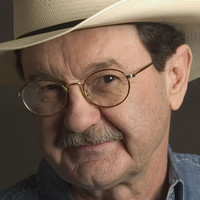On Jan. 2, yet another American soldier died in Iraq. But Staff Sgt. Ryan Maseth, a highly decorated Green Beret, didn't die from a roadside bomb or an al-Qaeda sniper. He was killed by his shower.
More accurately, Maseth's killer was privatization. That's the out-of-control policy of turning over essential military support systems to a sprawling, unregulated network of for-profit corporations and letting them get away again and again with shoddy — even deadly — work.
Maseth was safely inside his Army base in Baghdad when he reached for the shower faucet. Electricity instantly shot through the pipes, through the water itself, and through his entire body, electrocuting him. His mother, stunned, pressed the Army for details, but got only hemming and hawing at first. Then she got a lie: She was told that her son had a "small appliance" with him in the shower. She knew better and kept pushing, finally learning that the facility's water pump had not been properly grounded.
Worse, Army documents reveal that Halliburton, under contract to inspect such systems, had found serious electrical problems in this facility nearly a year before Maseth's last shower. Why wasn't it fixed? Because Halliburton's contract did not cover "fixing potential hazards," instead requiring only that it fix equipment already malfunctioning.
Meanwhile, the Army itself should have known about this death trap, but under the Pentagon's convoluted privatized system, the danger that Halliburton found was not red-flagged and was never reviewed by a "qualified government employee."
At least a dozen of our soldiers have been killed by improper grounding of electrical equipment, but Halliburton coldly claims that it is not part of the Army and has no contractual obligation to prevent the electrocution of American troops.
Big Oil's Free-Market Hokum
Five honchos of Big Oil appeared before Congress last month singing in perfect harmony their old tune that skyrocketing gasoline prices are simply the product of free-market forces. "The fundamental laws of supply and demand are at work," crooned the president of Shell Oil.
Bovine excrement! There is no free market in the oil industry. Sure, global demand for petroleum is up, but under free-market laws, supply is supposed to rise to meet that demand and hold prices stable. There's only a handful of global suppliers, however, and these oligopolists openly conspire to restrict the flow of crude, thus doubling oil prices in the past year.
Who are the oligopolists? The OPEC cartel, for sure, which has flatly rejected pleas to open up its pipelines. But it's not the only one. Yes, Saudi Arabia and Iran are the two largest producers on the globe, but who is the third? Exxon Mobil! Exxon, Shell, BP and other brand-name gasoline giants who so piously invoke supply and demand orthodoxy in congressional testimony are themselves major producers, and they have a direct interest in keeping supply short to hold their crude prices high.
Wait, you say, doesn't that raise their cost of making gasoline? Yes, but so what? There is no free market at the pump, either. Thanks to the rash of mergers that Washington has allowed, gasoline refining is oligopolized, too — and guess what? The big refiners are now slashing their output of gasoline to keep supply low and prices rising. Also, notice that pump prices are the same at Exxon, Shell and other major stations. If a free market really existed, at least one of them would try to attract customers by cutting prices.
By locking up supply, these oil barons are able to rob us — and that's another reason America must push alternatives to oil.
To find out more about Jim Hightower, and read features by other Creators Syndicate writers and cartoonists, visit the Creators Syndicate web page at www.creators.com.






View Comments